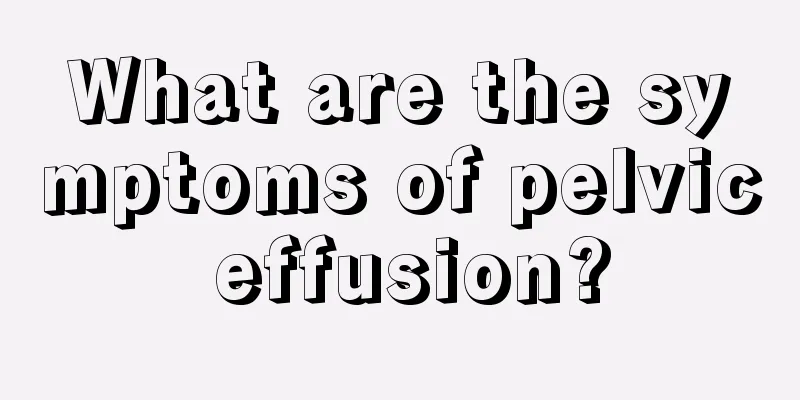What are the contraindications of uterine suspension surgery?

|
For friends who want to undergo uterine suspension, it is necessary to understand the relevant contraindications of uterine suspension. So what are the contraindications of uterine suspension? Next, this article will introduce to you the contraindications of uterine suspension. Friends who want to know more about this aspect can take a look! Please see the detailed introduction below. Uterine suspension is used as a surgical treatment for uterine prolapse. Uterine suspension is one of the methods to correct retroverted uterus. Because the uterus is pulled forward and upward and pressed against the abdominal wall, it can also correct uterine prolapse. However, if the bladder and rectum are obviously prolapsed, the anterior and posterior walls of the vagina must be repaired at the same time. Uterine suspension is suitable for: 1. For young women with mild uterine prolapse who wish to have children, round ligament suspension surgery is recommended. 2. For middle-aged and elderly people who do not need to have children, and who have uterine prolapse but mild bulging of the anterior and posterior vaginal walls, abdominal wall fixation is suitable. What are the contraindications for uterine suspension? Contraindications for uterine suspension are as follows: 1. Patients with poor general condition, such as severe heart disease, hypertension, nephritis, diabetes, cirrhosis, liver damage, active tuberculosis, pulmonary insufficiency, long-term cough, mental disorder, malignant tumor, hemorrhagic disease and severe anemia are not suitable for surgery and should consider surgery after their condition improves. 2. Vulvitis, vaginitis (trichomoniasis, fungal or senile), severe cervical erosion or pelvic inflammatory disease, etc., should be treated after they are under control. 3. Surgery is not recommended for cervical and/or vaginal ulcers that have not healed. However, surgery is acceptable if the ulcer is superficial and within the resection range. 4. Patients with malignant lesions of the cervix or uterine body. Surgery for uterine prolapse is not recommended. For cervical carcinoma in situ or very early uterine body cancer, vaginal hysterectomy and repair of the anterior and posterior vaginal walls may be considered. 5. Surgery is not recommended during menstruation, pregnancy and lactation. If the operation is performed 3 to 7 days after the end of menstruation, the incision will heal before the next menstruation. If surgery is performed during pregnancy, there is a high possibility of recurrence of uterine prolapse. During lactation, tissue is fragile, sutures can easily cut tissue, cause bleeding, and spread infection. The above is an introduction to the contraindications of uterine suspension. I believe that after reading the above introduction, you will be very clear about the relevant contraindications of uterine suspension. In this way, you will know whether you are suitable for this operation. Therefore, for friends who want to undergo uterine suspension surgery, it is very helpful to understand this knowledge! |
<<: What are the dangers of uterine cysts
>>: What should I pay attention to after uterine erosion surgery?
Recommend
What are the hazards of essential oil back opening during menstruation
During menstruation, women will experience some d...
What is the cause of uterine rectal crypt effusion?
Gynecological diseases are very complicated. In s...
What causes bleeding gums during early pregnancy?
Many female friends whose gums are normally healt...
Can eating ginger treat Parkinson's disease? A research team from the University of Ottawa in Canada found a new target for treatment
Parkinson's disease, also known as Parkinson&...
Will postpartum anemia lead to insufficient milk supply?
How to recuperate after giving birth to a weak bo...
Women have such incredible signs during their critical period
Women have an ovulation period every month. Is th...
How to take care of girls' private parts
For adolescent girls, private parts are a private...
Which women are not suitable for drinking honey
Honey can be seen in many areas of daily life. In...
Being beaten in a dream and waking up with a black eye? Revealing the terrifying interpretation of dreams!
Author: Zhou Fenli, deputy chief physician, Pekin...
Endocrine regulation is a compulsory course for women
Endocrine refers to the human body's endocrin...
Can pregnant women with blood type O have a second child?
We all know that our blood has types, generally t...
If you have phlegm but can't cough it up, airway clearance technology can help you
Coughing and coughing up phlegm! This should be f...
Can pregnant women eat seed watermelon?
The pregnant woman was originally a first-class p...
The first time I didn't bleed, but the second time I did.
Some female friends did not bleed during the firs...
How to deal with joint pain during confinement
Pregnant women finally wait for their babies to b...









